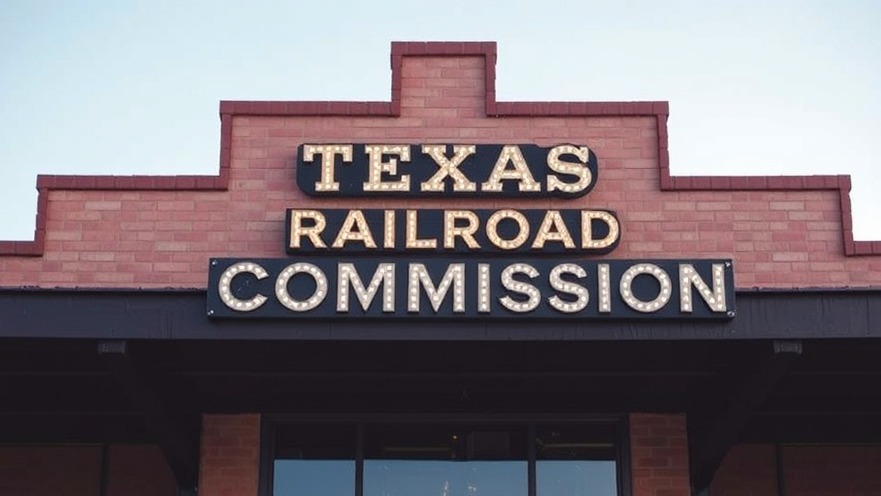
Jon Rosenthal: A New Contender for Texas Railroad Commission
In a bold move that has captured the attention of Texans statewide, State Representative Jon Rosenthal, a Democrat from Houston, announced his candidacy for the Texas Railroad Commission. This decision, made public on Monday, marks a strategic shift for Rosenthal, who has represented House District 135 since 2019 but will not be seeking reelection to his current position in the Texas House during the upcoming midterms. Instead, he aims for the influential role within an agency pivotal to overseeing Texas's oil and gas industry.
A Background in Energy and Politics
Rosenthal is not a newcomer to the energy sector. With a background as an oilfield mechanical engineer and 25 years of industry experience, he believes his technical acumen equips him ideally to lead the commission. “I’m running for Texas Railroad Commissioner to bring accountability and common-sense solutions to an agency that desperately needs both,” Rosenthal stated. His familiarity with both energy policies and the intricacies of regulation prepares him to offer Texans insights and oversight in an industry that has significant impacts on the state's economy and environment.
Facing Off in a Republican-Dominated Landscape
As Rosenthal embarks on his campaign for the commission, he will likely face off against incumbent Republican Jim Wright, who is seeking reelection in 2026. The commission, which consists of three members with staggered terms, has historically been dominated by Republicans. This dynamic presents a considerable challenge for Rosenthal, particularly given the financial ties often seen between commission members and the industry they regulate. Rosenthal aims to shift this narrative, asserting a commitment to serving the public interest over that of high-dollar lobbyists and entrenched interests.
The Evolution of the Texas Railroad Commission
Established in the 1890s to oversee state railroads, the Texas Railroad Commission (RRC) now regulates far more than just railroads. Its scope has evolved significantly to include oversight of oil and gas extraction, pipeline safety, and mine regulations. With these responsibilities, the RRC holds a crucial role in addressing environmental and regulatory challenges facing Texas. Critics have long questioned the agency’s ties to the very industries it regulates, which can raise conflicts of interest. Rosenthal's campaign lends a voice to those advocating for reform and transparency.
The Impact of Past Legislative Actions
Rosenthal's tenure in the Texas House has been marked by active opposition to policies that he feels undermine vital rights or public safety. He was notably involved in the quorum break that temporarily thwarted attempts to redraw congressional maps favorably for Republicans. Additionally, he has introduced legislation aimed at modernizing Texas’s approach to social issues, including two crucial bills: one to ban child marriage and another to amend the Texas Education Code regarding student absence policies for serious illnesses. His record indicates a clear commitment to addressing contemporary issues while maintaining the interests of his constituents.
What Rosenthal's Campaign Represents for Texas Voters
At the core of Rosenthal's campaign is a message of accountability and responsiveness—qualities he believes the Texas Railroad Commission desperately needs. As he engages voters, he not only aims to secure a place on the commission but to elevate the discourse surrounding the regulation of Texas’s vital oil and gas industries. For many Texans, the election of a candidate like Rosenthal signals an opportunity for more equitable governance that serves the people rather than special interests.
Closing Thoughts and Call to Action
Jon Rosenthal's decision to run for the Texas Railroad Commission reflects a deeper desire for reform within a crucial state agency. His campaign promises a renewed focus on accountability and transparency amid longstanding industry ties. As the 2026 election approaches, it will be essential for Texas voters to consider the implications of their choices for the state's regulatory landscape. Interested citizens are encouraged to stay informed about the developments in this race and engage in discussions that shape the future of Texas governance.
 Add Element
Add Element  Add Row
Add Row 



Write A Comment